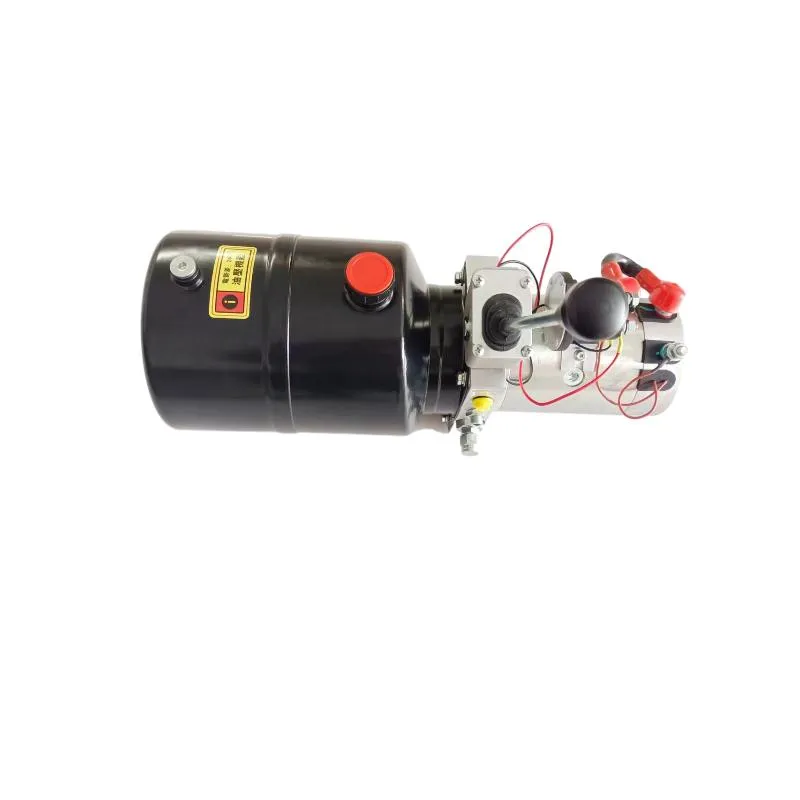Dec . 13, 2024 21:40 Back to list
Hydraulic Cylinder Solutions for Efficient Elevator Systems and Performance Optimization
The Hydraulic Cylinder A Key Component in Elevator Systems
Elevators are a fundamental aspect of modern architecture, ensuring seamless vertical transportation in buildings. One of the critical components of many elevators is the hydraulic cylinder. This device plays an essential role in providing the power necessary to lift and lower the elevator car, allowing for the safe and efficient movement of passengers and goods.
A hydraulic cylinder operates based on Pascal's principle, which states that pressure applied to a confined fluid is transmitted undiminished in all directions. In an elevator system, the hydraulic cylinder is filled with hydraulic fluid, typically oil. When the hydraulic pump activates, it forces the fluid into the cylinder, creating pressure that pushes a piston upward. The upward movement of the piston is what lifts the elevator car. When the elevator needs to descend, the hydraulic fluid is released back into the reservoir, allowing the piston to lower slowly and safely.
The Hydraulic Cylinder A Key Component in Elevator Systems
In terms of design and construction, hydraulic cylinders are engineered to handle substantial pressure. They consist of several key components, including a cylinder barrel, piston, piston rod, seals, and ports for the hydraulic fluid. The materials used in the construction of hydraulic cylinders are typically high-strength alloys or stainless steel, ensuring durability and resistance to wear and tear over time.
elevator hydraulic cylinder product

Maintenance is crucial for the optimal performance of hydraulic cylinders. Regular inspections should be conducted to check for leaks, wear on seals, and the overall condition of the cylinder and associated components. A well-maintained hydraulic system can provide reliable service for many years, while neglecting upkeep can lead to inefficiencies, increased energy consumption, and even catastrophic failures.
Hydraulic elevators are also valued for their smooth operation. Unlike mechanical systems, which may produce jerky movements, hydraulic systems offer a gentle ride experience. This is particularly important in buildings where passenger comfort is a priority. The elevators' ability to stop precisely at each floor also enhances user experience and safety.
However, it is essential to address the environmental impact of hydraulic systems. Traditional hydraulic fluids can be harmful if leaked, prompting manufacturers to explore biodegradable and non-toxic alternatives. Additionally, innovations in hydraulic technology aim to reduce energy consumption, such as the implementation of regenerative drives that can recycle energy when the elevator descends.
As urbanization continues to rise, the demand for efficient transportation solutions in buildings will increase. Hydraulic cylinders will remain a vital part of this equation, providing reliable, safe, and efficient service. With ongoing advancements in technology, the future of hydraulic elevators looks promising, with improved energy efficiency and environmentally friendly practices leading the way.
In conclusion, the hydraulic cylinder is a powerhouse of the elevator system, integral to its operation and functionality. Its design, coupled with the fundamental principles of hydraulics, allows for the movement of heavy loads with precision and comfort. As we look towards the future, the evolution of hydraulic technology promises to enhance the efficiency, safety, and sustainability of elevator systems in our ever-growing urban landscapes.
-
Fork Lift Power Units - Hebei Shenghan | Efficiency, Reliability
NewsJul.13,2025
-
1.5-Ton Turbocharged Cylinder-Hebei Shenghan|Hydraulic Solution,Energy Efficiency
NewsJul.13,2025
-
Auto Hoist Power Units-Hebei Shenghan|Efficiency&Industrial Lifting
NewsJul.13,2025
-
Double Acting Power Units-Hebei Shenghan|Hydraulic Solutions,Industrial Efficiency
NewsJul.13,2025
-
1.5 Ton Lifting Cylinder 70/82-40-290-535 - High-Performance Hydraulic Solution | Hebei Shenghan
NewsJul.13,2025
-
Fork Lift Power Units - Hebei Shenghan | Efficiency&Reliability
NewsJul.13,2025
